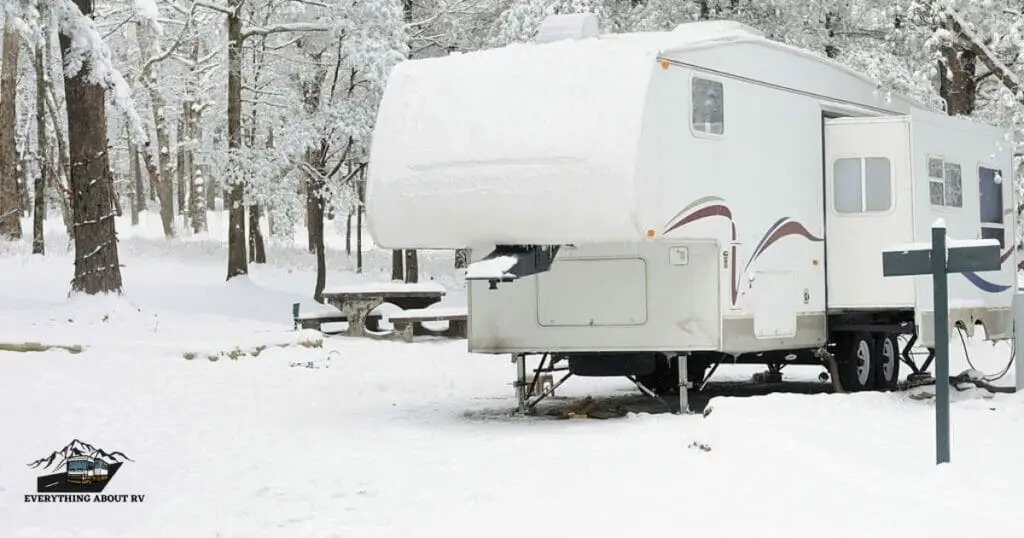
While many RV enthusiasts prefer to chase the warmth of summer, there’s a unique charm to RV cold weather camping that beckons the intrepid traveler. From serene winter landscapes to the cozy ambiance of a well-heated RV, camping in cold weather offers a different perspective on the world of recreational vehicles. In this comprehensive guide, we’ll explore the ins and outs of RV cold weather camping, sharing essential tips, gear recommendations, and safety measures to help you embark on memorable winter adventures. So, layer up and join us as we dive into the magic of cold weather camping in your cozy home on wheels.
Why Choose RV Cold Weather Camping?
Camping in cold weather may seem daunting, but it comes with a host of unique rewards:
Secluded Beauty:
Winter landscapes offer a sense of tranquility and solitude that can’t be matched in crowded summer campgrounds. Snow-covered forests, frozen lakes, and quiet trails await.
Cozy Comfort:
Modern RVs come equipped with excellent heating systems, making it possible to enjoy the great outdoors while staying warm and comfortable inside your home on wheels.
Off-Peak Enjoyment:
Cold weather camping means fewer crowds and lower campsite fees. You can often have popular destinations all to yourself.
Wildlife Sightings:
Winter can be an excellent time for wildlife viewing. Many animals are more active during the colder months, making it easier to spot them.
Unique Activities:
Embrace the cold by trying activities like snowshoeing, cross-country skiing, or ice fishing, all of which can be enjoyed conveniently from your RV basecamp.
Essential Tips for RV Cold Weather Camping
Insulate Your RV:
Ensure your RV is properly insulated. Check for drafts around windows, doors, and vents, and use weather stripping to seal any gaps. Adding thermal curtains can also help keep the cold out.
Winterize Your Plumbing:
If temperatures will drop below freezing, consider winterizing your plumbing system to prevent frozen pipes. Use antifreeze in the pipes and tanks, and keep the grey and black tanks closed when not in use.
Propane Management:
Propane is essential for heating and cooking in cold weather. Carry extra propane tanks and use a propane tank blanket or heated hose to prevent freezing.
Skirt Your RV:
Skirting your RV involves creating a barrier around its base to keep the cold air out and the warm air in. This can significantly improve insulation and help maintain a comfortable interior temperature.
Stay Well-Stocked:
Winter weather can be unpredictable, so stock up on essential supplies, including food, water, and emergency gear. It’s also a good idea to have tire chains or winter-rated tires for added safety.
Ventilation is Key:
While it’s essential to keep your RV warm, adequate ventilation is crucial to prevent condensation buildup, which can lead to mold and mildew. Crack a window or use a vent fan to circulate air.
Heating Solutions:
Invest in a good quality electric space heater or a catalytic heater. These can supplement your RV’s furnace and save propane.
Keep Warm Clothing:
Layer up with warm clothing, including thermal underwear, insulated jackets, and waterproof boots. Don’t forget hats and gloves for outdoor activities.
Pack Insulating Mats:
Use insulating mats or rugs on the floors to help keep your feet warm and prevent heat from escaping through the floor.
Plan for Shorter Days:
In the winter, daylight hours are shorter, so plan your activities accordingly. Be prepared for early sunsets and have reliable lighting for both inside and outside your RV.
Safety Considerations
Safety should always be a top priority when camping in cold weather:
Monitor Carbon Monoxide:
Ensure your RV’s carbon monoxide detector is working correctly, and never use gas-powered equipment inside the RV, as it can produce deadly carbon monoxide.
Stay Informed:
Keep an eye on weather forecasts and road conditions. Be prepared for the possibility of snow and ice on the roads, and carry tire chains if necessary.
Emergency Kit:
Have a well-stocked emergency kit that includes items like a first-aid kit, blankets, flashlights, and a fully charged cell phone.
Stay Hydrated and Well-Fed:
Cold weather can lead to dehydration and increased calorie burn. Keep drinking water and eat high-energy foods to stay warm and fueled.
Notify Someone:
Let someone know your travel plans, including your destination and expected return date. This is crucial in case of unexpected emergencies.
Conclusion:
RV cold weather camping opens up a world of serene beauty, cozy comfort, and unique adventures. With the right preparations, gear, and safety measures in place, you can embrace the chill and create unforgettable memories in the midst of winter’s beauty. So, pack your warmest clothes, fire up your RV’s heater, and embark on a cold weather camping adventure that will leave you with a lifetime of stories to tell.



